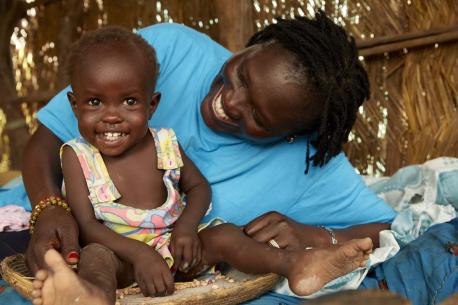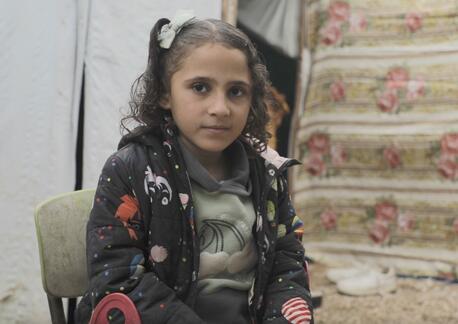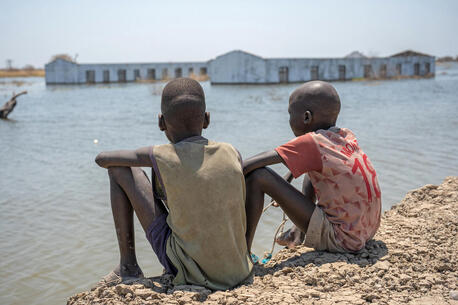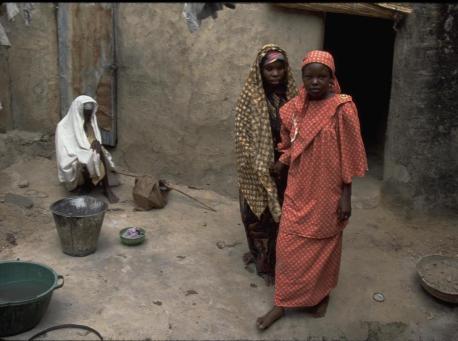
Malnutrition Need Not Be a Life Sentence
In 2019, 14-month-old Adut's parents would have given anything to see the quiet, listless toddler play with her seven brothers and sisters. But severely acutely malnourished, she was too weak and tired to do little more than sit quietly in her mother's lap.
At a little over 14 pounds, Adut weighed below what a healthy toddler her age should. She also had malaria, respiratory problems and diarrhea.
“Her peers are already running around, but Adut is refusing to take one step unless someone is holding her hand, or she can hold on to something,” her father, William Deng, said of his daughter's condition. He and his wife sought treatment for her at a UNICEF-supported outpatient therapeutic program (OTP) at the Gabat Nutrition Center in Aweil, South Sudan. After eight weeks of care from nutrition specialists, Adut was well on the road to recovery.
Now, two years later, Adut is a different child. She smiles, plays and runs just like other children her age.
"After receiving Ready-to-Use Therapeutic Food (RUTF), she has greatly improved," says Judy Juru Michael, a UNICEF South Sudan nutrition officer. "Malnutrition is not a life sentence."
UNICEF is working to save the 1.4 million South Sudanese children who are now threatened by acute malnutrition. Those who can benefit from the prevention and treatment methods UNICEF has perfected can have the healthy life that Adut now enjoys. But with the lean season approaching and funding cuts threatening programs, Andrea Suley, UNICEF South Sudan’s acting representative, has raised the alarm for malnourished children who may never recover:
“If we, as a humanitarian community, do not receive sufficient funding, the reality for children and families is that no help will be coming.”
Top photo: Here, in 2019, after eight weeks of treatment with Ready-to-Use Therapeutic Food, 16-month-old Adut was strong enough to enjoy playing with UNICEF nutritionist Jesca Wude Murye during a visit to the toddler's home in South Sudan. Today, she has fully recovered. © UNICEF/UN0344940/Wilson
HOW TO HELP
There are many ways to make a difference
War, famine, poverty, natural disasters — threats to the world's children keep coming. But UNICEF won't stop working to keep children healthy and safe.
UNICEF works in over 190 countries and territories — more places than any other children's organization. UNICEF has the world's largest humanitarian warehouse and, when disaster strikes, can get supplies almost anywhere within 72 hours. Constantly innovating, always advocating for a better world for children, UNICEF works to ensure that every child can grow up healthy, educated, protected and respected.
Would you like to help give all children the opportunity to reach their full potential? There are many ways to get involved.





